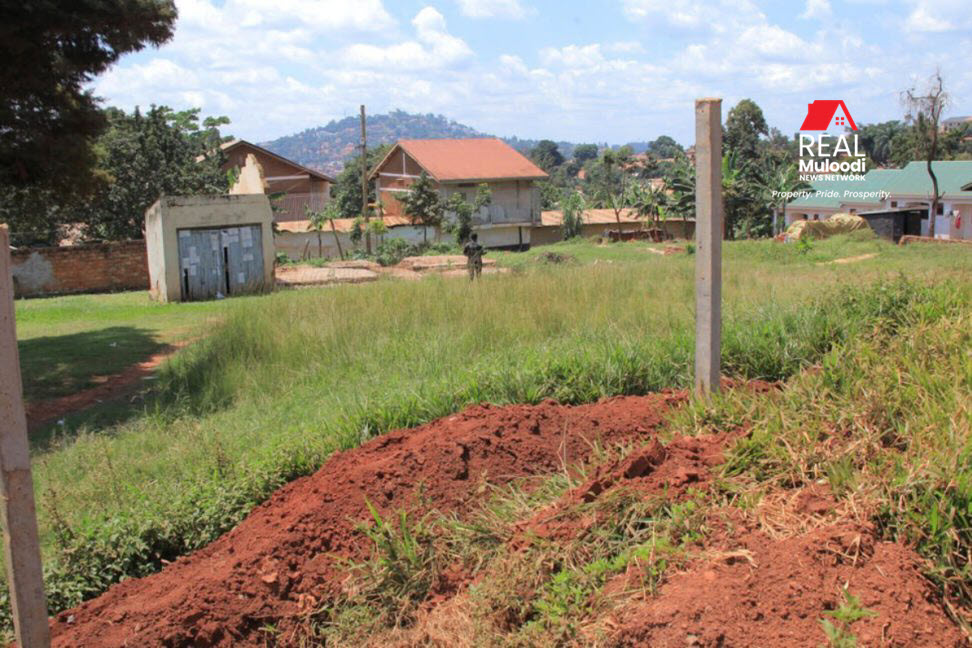UGANDA, Kampala | Real Muloodi News | Stories of fraudulent land deals in Uganda are plenty. Many Ugandans prefer to own homes, and the pressure and urgency to do so allows fraudsters to take advantage of buyers. It is hard to keep up with the different tricks used to con people into fake land deals.
Below are some everyday tricks used to con land buyers into fraudulent property deals:
1. Fake/Fraudulent Land Agents
Justine Kawere, having lost her husband, was struggling to support her five children. After almost two years of constant struggle to make ends meet, her children were forced to dropout of school.
In 2010 Kawere was desperate, and began looking at opportunities to travel abroad for work for better pay. As fate would have it, a family friend brokered an opportunity for her to travel to Dubai and work as a cleaner in a hotel.
Kawere’s plan was to save part of her earnings to buy a piece of land back in Uganda, to construct rentals through which she would raise the money to pay for her children’s school fees.
In 2012, she received a tip from a friend in Kampala, who sent her an advert for a piece of land placed by a real estate company. Kawere responded to the advert, and not long after she returned to Kampala to confirm and do a site visit of the land that she had agreed upon with the estate agents.
Kawere thought her dreams had come true when she bought the 50x100ft plot of land, located in Kasangati on Gayaza road, Wakiso district, for Shs10m.
She signed the contract and paid the estate agent, who promised to revert with the duly executed transfer forms and a certificate of title. However, the documents were never availed to her, despite her many demands.
Kawere therefore went to the Ministry of Lands, where to her despair, she discovered that the land did not even belong to the real estate agency. She had been duped.
Ms Kawere is one of the lucky ones. After a year-long legal fight with the real estate agent, the court ordered the agency to compensate her.
Justine’s story is one of many. Fake land agents continue to take advantage of buyers who trust them and cannot do enough research before buying land from them.
What is being done?
In March 2021, Mr Richard Okoth Othieno, the West Budama North Member of Parliament, tabled a bill called the Real Estate Agents Bill 2020. The bill seeks to criminalise fraud and unscrupulous real estate agents by regulating the sector through licensing real estate agents.
While government is working to get legislation in place, there are still measures you can take to safeguard yourself. Before renting or buying property or land through an agent, you should first verify their membership with a credible association, such as the Association of Real Estate Agents Uganda (AREA-U). The association can verify an agent’s identity, and they have set guidelines which genuine agents must follow.
2. Fake land titles
There have been numerous cases in the past of conmen impersonating elderly family members or pretending to be local officials to sell fake land titles.
The ability to differentiate between a fake and a real land title is critical. Milly Nassolo Kikomeko, a lawyer and social rights activist, gives some helpful tips, which we have summarised:
- A genuine title has official signatures from the issuing office, which could take the form of a signature from the regional land office and an official seal that the government of Uganda gazettes.
- Block numbers, blue page, and encumbrance page are present in any genuine land title.
- Always search for the physical title at a lands office in the region. Write to the commissioner and give details about the land before making a transaction.
What is being done?
The Ministry of Lands, Housing, and Urban Development introduced additional measures in October 2020 to prevent fraud. The additional 7 features that land titles should bear include:
- Specific matrix bar-code
- National Identification Number
- Phone number
- Post office number
- Email address
- Duly authenticated printout of a map
- Printed on four pages on a special paper, bearing the official watermark
Further, Ministry of Lands, Housing and Urban Development also unveiled the completion of the The National Land Information System last year, a computerised land registry to stop fraudsters with fake land titles in their tracks.
The project covers the country’s entire territory as well as all its districts: twenty-one (21) cadastral zones serviced by Ministry Zonal Offices (MZOs), the National Land Information Centre (NLIC), the MLHUD Headquarters (HQ) both in Kampala and the Department of Surveys and Mapping (DSM) in Entebbe.
Computerised land records are critical to help to safeguard against fraud.
3. ‘Buying Air’
‘Buying air’ is a phrase used to describe a widespread type of fraud in Uganda. Here, someone sells land to an unsuspecting individual by pretending to be the owner of the said property.
Liam Taylor writes about Kirabo, who returned from abroad and realised that someone sold his property several times to innocent buyers using a fake title. Similarly, Rachel Namaganda went to her village, only to return to Kampala to discover that her house in Kampala was up for sale.
What is being done?
Many owners write “this plot is not for sale” on the perimeter of their property to prevent fraudsters from selling their land when they are not around.
Deception in the real estate sector happens so quickly that it is usually later when the victim realises the con.
In fact, in 2017, there were 22,413 pending land cases, and over 6,669 had been pending for two years or more. So, be sure to do research before you make a transaction and involve lawyers and surveyors that you trust.
READ MORE LIKE THIS:
Report Land Grabbing and Illegal Evictions on this Toll Free Line



